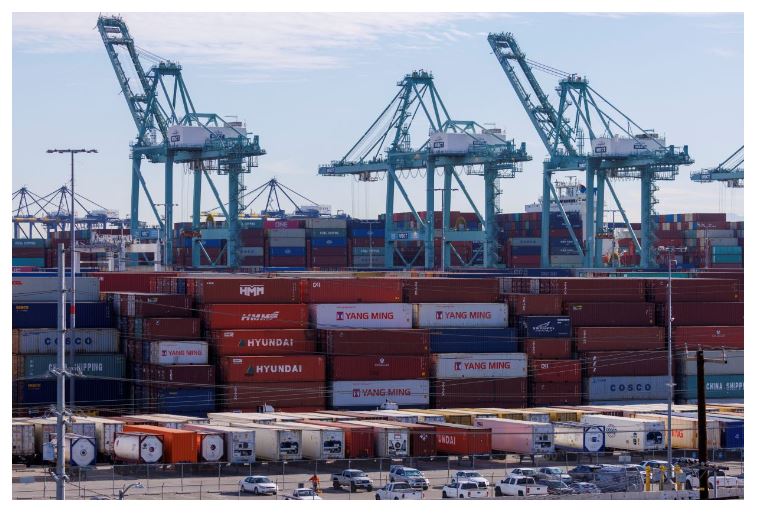Malaysia: Domestic trade to drive port sector
PETALING JAYA: The ports and logistics sector activity will be mainly driven by domestic trade in the near term as global trade’s growth is poised to slowdown this year amid greater carbon emissions regulations.
The World Trade Organisation (WTO) projects the global merchandise trade volume to only inch up by 1.7% this year, compared with a 2.7% expansion in the previous year.
Stricter regulations on carbon emissions may pose new challenges to global trade, Kenanga Research said.
Some of these regulations on carbon emissions come from the United Nations’ International Maritime Organisation (IMO) and the European Union (EU), it said.
“While the exact implications of the regulation of IMO and EU’s Carbon Border Adjustment Mechanism (CBAM) on the seaport and logistics sectors remain unclear (especially for CBAM which is still pending finalisation), the volume of containers heading to the EU will certainly be affected which is about 18% of container throughput under Asia-Europe trade.
“This is especially so for those originating from China, which is a major exporter of iron, steel and aluminium to the EU,” the research house said.
Under the new IMO rules, effective January 2023, all ships must report their carbon intensity.
“The ships must record a 2% annual improvement in their carbon intensity from 2023 through 2030 or face being removed from service,” it noted.
The research house said the EU’s CBAM policy could disrupt the exports of certain commodities such as iron and steel, cement, aluminium, fertiliser, electricity and hydrogen to the EU.
During the transition period between October 2023 and December 2025, EU importers must report embedded emissions in goods imported importers, on a quarterly basis as well as any carbon price paid in a third country, it said.
“When the CBAM takes full effect starting 2026, importers will need to buy carbon credits reflecting the emissions generated in producing them,” the research house noted.
On another matter, it said China’s re-opening activities were also slower than market expectation despite the recovery in supply chains.
“Consumer confidence and spending globally are likely to take a beating on sustained elevated inflation, rising interest rates and the slowing global economy,” it added.
However, there may be selected bright spots in the logistics sector locally as it is less directly exposed to external headwinds and it rides on the booming eCommerce segment.
Local eCommerce gross merchandise volume is projected to grow at a compounded annual growth rate of 7% from 2023 to 2027 and its size could reach RM1.9 trillion by 2027.
Kenanga Research has a “neutral” call on the sector and its top picks are Bintulu Port Holdings Bhd and Swift Haulage Bhd
and Swift Haulage Bhd with an “outperform” rating.
with an “outperform” rating.
Source: https://www.thestar.com.my/business/business-news/2023/07/18/domestic-trade-to-drive-port-sector


 English
English




